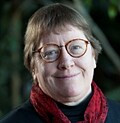Efforts to address PFAS contamination have been primarily directed at exposure from drinking water. However, a recent study by the Environmental Working Group (EWG) found high PFAS levels in locally caught freshwater fish across the United States.
Per- and poly-fluoroalkyl substances (PFAS), commonly known as “forever chemicals,” can be found in soil and water, in fish, and in our bodies. This study found that consuming just one serving of fish can be equivalent to drinking water contaminated with high levels of PFAS (48 parts per trillion) for a month.
PFAS are associated with human health harms, including cancer, heart disease, birth defects, liver disease, and decreased immunity. Rural and Indigenous communities, relying on freshwater fish as part of their traditional diet and culture, can be at higher risk from these health threats.
Many states have PFAS-related fish consumption advisories, but Alaska lacks regulations and health guidelines for PFAS contamination. Several lakes in Alaska have fish consumption warnings due to PFAS contamination from firefighting foam. PFAS exposure is a significant issue in Alaska also due to atmospheric transport and ocean currents carrying pollutants from all over the planet to the Arctic.
In this webinar, CHE-Alaska hosted EWG’s Dr. Tasha Stoiber and ACAT’s Dr. Samarys Seguinot Medina to discuss PFAS contamination in freshwater fish, and how it represents an environmental justice issue for communities that depend on locally caught fish for sustenance and traditional cultural practices.
Dr. Stoiber presented a recent study on PFAS contamination in freshwater fish across the country. Dr. Seguinot Medina discussed PFAS contamination and related legislation specific to Alaska.
Featured Speakers
 Dr. Tasha Stoiber is a Senior Scientist for the Environmental Working Group and works to better understand the connections between exposure to chemicals and public health. As a member of EWG’s science investigation’s team, she researches contaminants in drinking water, indoor air pollution and chemicals in consumer products and food. She holds dual bachelor’s degrees in biological sciences and environmental engineering from Michigan Technological University. She attended graduate school at University of Wisconsin-Madison, where she earned a Ph.D. in environmental chemistry & technology. She joined EWG’s San Francisco office in 2014.
Dr. Tasha Stoiber is a Senior Scientist for the Environmental Working Group and works to better understand the connections between exposure to chemicals and public health. As a member of EWG’s science investigation’s team, she researches contaminants in drinking water, indoor air pollution and chemicals in consumer products and food. She holds dual bachelor’s degrees in biological sciences and environmental engineering from Michigan Technological University. She attended graduate school at University of Wisconsin-Madison, where she earned a Ph.D. in environmental chemistry & technology. She joined EWG’s San Francisco office in 2014.
 Dr. Samarys Seguinot Medina also known as Sama or by her given Siberian Yupik name, Umyuugalek, is a Boricua from the Archipelago of Borikén (Puerto Rico). Today she serves as the Environmental Health Director at ACAT. The focus of her work is supporting ACAT's community-based participatory research projects and environmental health research. Sama has extensive experience in environmental justice advocacy; decolonization efforts in Borikén, the Caribbean and Alaska; community-based participatory research; environmental health education; environmental planning; and science translation. She earned a bachelor’s degree in biology specializing in Environmental Science from the Interamerican University of Puerto Rico, a master’s degree in science of environmental risk assessment & environmental planning from Universidad Metropolitana, and a doctorate degree in public health specializing in environmental health from the University of Puerto Rico, Medical Sciences Campus.
Dr. Samarys Seguinot Medina also known as Sama or by her given Siberian Yupik name, Umyuugalek, is a Boricua from the Archipelago of Borikén (Puerto Rico). Today she serves as the Environmental Health Director at ACAT. The focus of her work is supporting ACAT's community-based participatory research projects and environmental health research. Sama has extensive experience in environmental justice advocacy; decolonization efforts in Borikén, the Caribbean and Alaska; community-based participatory research; environmental health education; environmental planning; and science translation. She earned a bachelor’s degree in biology specializing in Environmental Science from the Interamerican University of Puerto Rico, a master’s degree in science of environmental risk assessment & environmental planning from Universidad Metropolitana, and a doctorate degree in public health specializing in environmental health from the University of Puerto Rico, Medical Sciences Campus.
 Dr. Pamela Miller, the founder and Executive Director of ACAT since 1997, brings more than 35 years of research, education, and advocacy experience to her present work. In 2016, Pam was elected as Co-Chair of the International Pollutants Elimination Network (IPEN), a coalition of more than 600 environmental health and justice organizations working in 124 countries. She is also a principal investigator for community-based research projects supported by the National Institute of Environmental Health Sciences.
Dr. Pamela Miller, the founder and Executive Director of ACAT since 1997, brings more than 35 years of research, education, and advocacy experience to her present work. In 2016, Pam was elected as Co-Chair of the International Pollutants Elimination Network (IPEN), a coalition of more than 600 environmental health and justice organizations working in 124 countries. She is also a principal investigator for community-based research projects supported by the National Institute of Environmental Health Sciences.
 This webinar is hosted by the CHE-Alaska Partnership, which is coordinated by Alaska Community Action on Toxics (ACAT). Driven by a core belief in environmental justice, ACAT empowers communities to eliminate exposure to toxics through collaborative research, shared science, education, organizing, and advocacy.
This webinar is hosted by the CHE-Alaska Partnership, which is coordinated by Alaska Community Action on Toxics (ACAT). Driven by a core belief in environmental justice, ACAT empowers communities to eliminate exposure to toxics through collaborative research, shared science, education, organizing, and advocacy.
